Animals
-
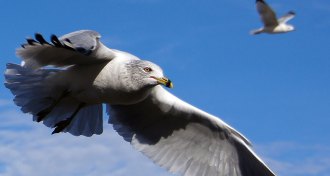 Animals
AnimalsAlien species fly on the wings of ducks and other waterbirds
Ducks, geese and other waterbirds can transport nonnative species and help alien invaders establish themselves.
-
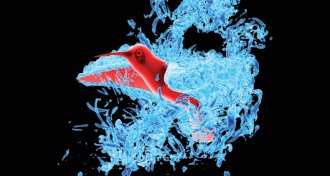 Animals
AnimalsCapturing the wonders of hummingbird flight
Recent computer simulations reveal how hummingbirds manipulate the air around them to aid in flight.
By Andrew Grant -
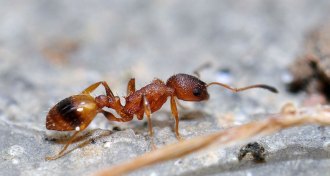 Animals
AnimalsAnts don’t make decisions on the move
Worker ants stand still while processing environmental cues and planning their next moves, a new study suggests.
-
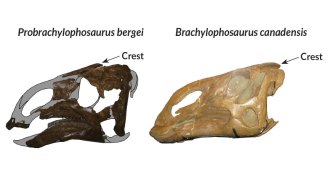 Paleontology
PaleontologyFossils provide link in dino crest evolution
Fossils from a newly identified duck-billed dinosaur in Montana could explain how their descendants developed flamboyant nose crests.
-
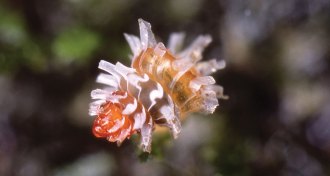 Animals
AnimalsThe fine art of hunting microsnails
Flotation, tact and limestone all prove vital to the quest for microsnails.
By Susan Milius -
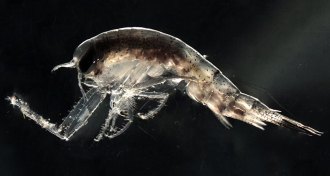 Animals
AnimalsThe moon drives the migration of Arctic zooplankton
In the darkness of the Arctic winter, the moon replaces the sun as the driver of zooplankton migration, a new study finds.
-
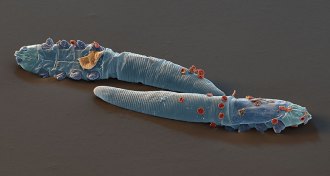 Animals
AnimalsThe mites living on your face probably run in your family
Demodex folliculorum mites, which live on human skin, have probably evolved with their hosts over time.
-
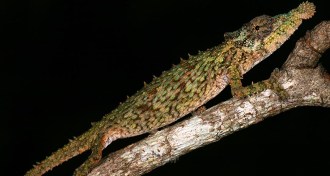 Animals
AnimalsSmall lizard packs powerful tongue
A tiny chameleon from South Africa sets an acceleration and power record for amniotes.
-
 Animals
AnimalsLittlest chameleons pack powerful tongues
A tiny chameleon from South Africa sets an acceleration and power record for amniotes.
-
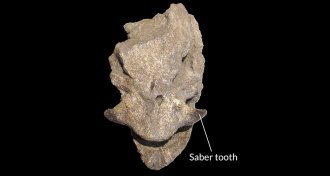 Paleontology
PaleontologySaber-toothed salmon teeth more like tusks than fangs
Saber-toothed salmon teeth may not have been positioned like fangs at all.
By Susan Milius -
 Animals
AnimalsAnimals get struck by lightning, too
Scientists found a group of sea lions apparently dead from a lightning strike. But those animals certainly aren’t the first animals to die that way.
-
 Animals
AnimalsSharks follow their noses home
Leopard sharks draw on scents to navigate back to shore, study suggests.